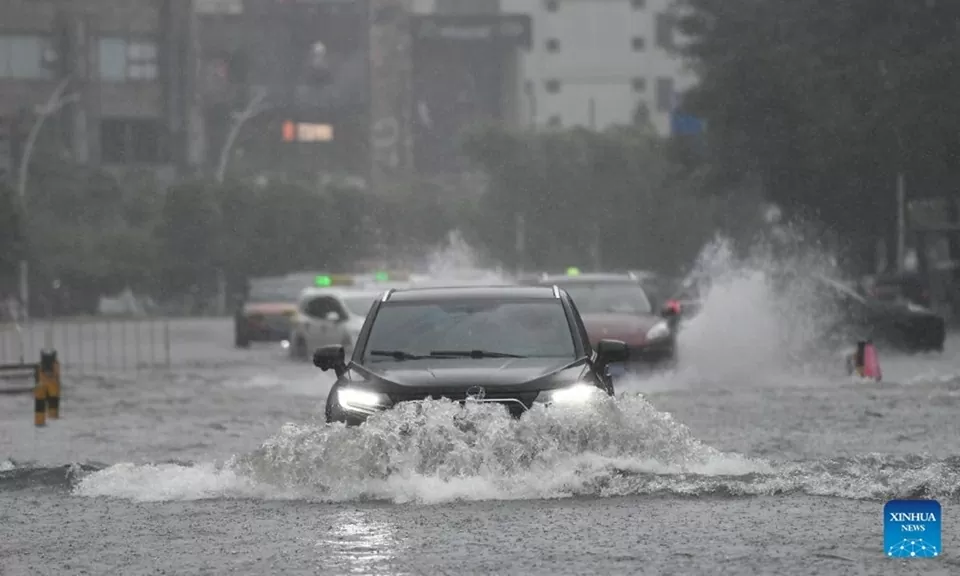 |
| Typhoon Wipha makes landfall in southern China. (Source: Xinhua) |
On Chinese social media, a series of videos have gone viral, recording scenes of people jostling to carry buckets, basins, and plastic containers to the sea to collect seafood. This phenomenon is called "seafood rain" by locals.
At Aomen Beach, Shenzhen, clams, oysters, fish, squid... lay scattered on the sand. The person filming the video said: "The rain was still pouring heavily but everyone was carrying a bucket. Some even carried a large basin to collect seafood. Whoever picked up a lot was considered lucky."
The incident attracted tens of thousands of comments on social network Douyin. Many people were amused by the rare sight. One account commented: "Each person has a bucket, this scene is more bustling than going to the early market."
Another user humorously wrote: "Free food dropped all over the beach."
According to oceanography experts from the Ocean University of China, the phenomenon of seafood drifting ashore after storms is a common occurrence in coastal waters of southern China.
When storms pass, large waves and strong currents under the sea will dislodge attached organisms such as oysters, clams, and mussels from rocks or farmed rafts, washing them ashore.
In addition, small fish, squid, crabs... living on the bottom or near the shore are also easily swept up by large waves, especially when storms have strong winds accompanied by rising sea levels.
However, local authorities and the Guangdong Center for Disease Control have repeatedly issued warnings: Do not eat seafood that drifts after the storm.
According to experts, after heavy rains, domestic wastewater from coastal farms can overflow into the sea, carrying disease-causing bacteria and viruses. Shellfish such as oysters and clams are prone to accumulate bacteria that cause acute diarrhea.
In addition, the rescue team also reminded people to be vigilant of some dangerous creatures such as jellyfish, sea snakes, sea urchins that can be washed ashore by waves. Accidentally touching these creatures can cause injury, skin burns or poisoning.
Source: https://baoquocte.vn/sau-bao-wipha-nguoi-dan-trung-quoc-thi-nhau-nhat-hai-san-chuyen-gia-khuyen-khong-nen-an-321862.html



![[Photo] Prime Minister Pham Minh Chinh receives Lao Minister of Labor and Welfare Phosay Sayasone](https://vphoto.vietnam.vn/thumb/1200x675/vietnam/resource/IMAGE/2025/11/11/1762872028311_dsc-2246-jpg.webp)


![[Photo] Chu Noodles - the essence of rice and sunshine](https://vphoto.vietnam.vn/thumb/1200x675/vietnam/resource/IMAGE/2025/11/11/1762846220477_ndo_tl_7-jpg.webp)



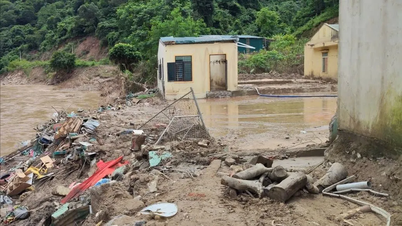

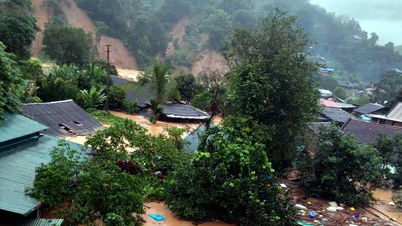




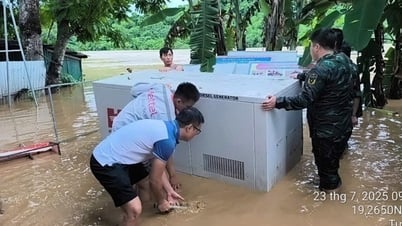

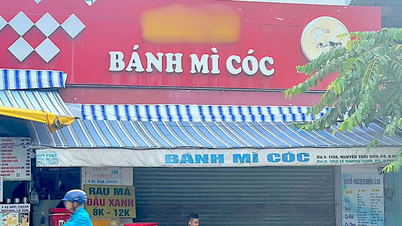









































































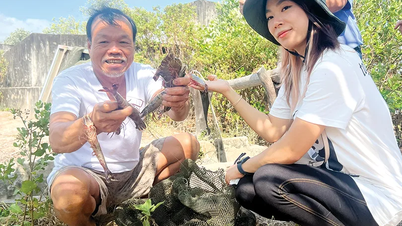






![Dong Nai OCOP transition: [Article 3] Linking tourism with OCOP product consumption](https://vphoto.vietnam.vn/thumb/402x226/vietnam/resource/IMAGE/2025/11/10/1762739199309_1324-2740-7_n-162543_981.jpeg)





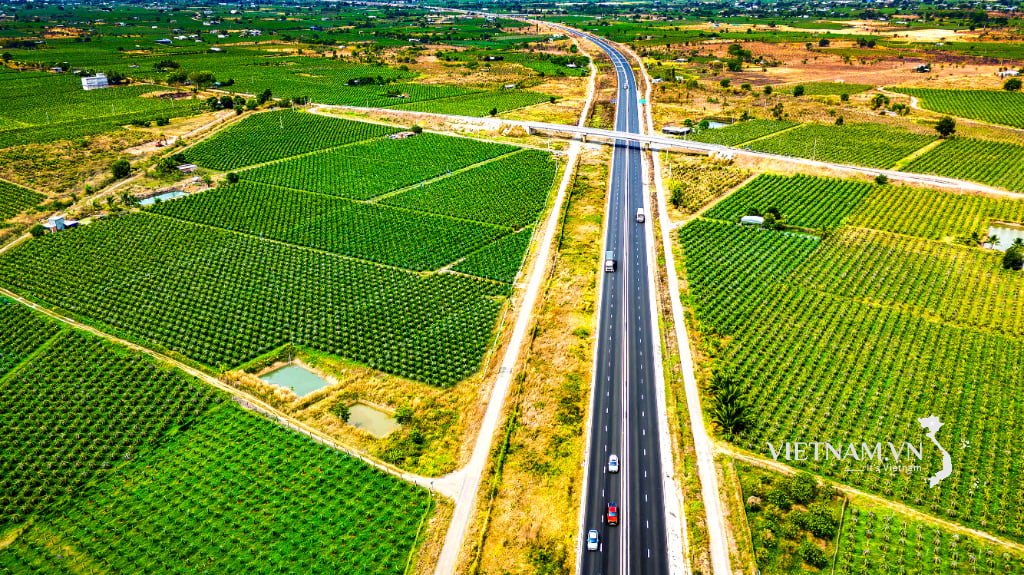


Comment (0)